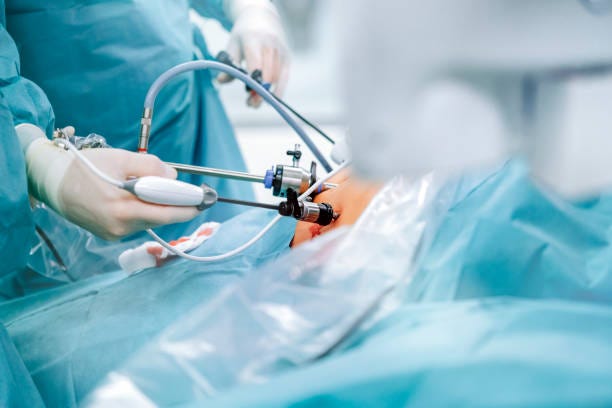The list of things one needs to do to be a good surgeon is near endless. Which is why none of us is perfect. But I figured that the list of things to avoid is much shorter. So this post is dedicated to all the mistakes that you have to avoid. And then if luck has it, you will make it to the other side of this glory train
Sin 1: Bad Counselling
As surgeons, we’ve seen thousands of people go into surgery, and the countless benefits it brought them. We know when it’s a good choice to make. We know when it’s not. So we are compelled to console the fearful and ailing that this surgery is the right choice to make.
In this pursuit, we will often gloss over the possible pitfalls of the procedure. That more than anything is likely to erode the trust that patients put in us.
I like to break counselling down into its five essential parts like a mental checklist and make sure I’ve gone through them in each conversation
Disease understanding – make sure they understand the nature of what they’re going through. The science of what is happening to them. Rationale is a great soother.
Procedure Mapping – go into great detail about how the procedure will be conducted. Pick up all aspects of the procedure and help them understand what is elaborate and what isn’t.
Uncertainties – share the doubts that I have. If there is an uncertainty I have, it’s an uncertainty they need to know about.
Contingencies – but I want them to know that we are prepared for all scenarios that come before us. So I share the options we are equipped with
Outcomes – this is the hard part. There’s some obvious and important discomfort they will have to face after surgery. But there is a lot that will no longer have to deal with. Showing them the trade-off is critical to good counselling.
Sin 2: The Icarus Act
The Icarus act in surgery is not discussing a case with your peers before flying in too close. I cannot stress enough how privileged we are at Mayflower to have a group of peers who present their opinions and apprehensions fearlessly. That culture has helped us tread carefully while also building consensus on some bold moves.
Sin 3: Park Strolling
No matter how good we get at surgery, every anatomy that we encounter is beautifully and violently different from the last. No two cases are ever the same. The biggest mistake knowing this is to treat a surgery as a walk in the same park you’ve been to hundreds of times before.
Visualise your way in, prepare for what landmarks you want to find, what milestones you are looking for and what success will look like.
Sin 4: Not Doing Your Tech Checks
The tools of a surgeon are an extension of their mind and body. These become our hands, they have a mind of their own, and wielding them isn’t as simple as pressing a button. Understanding how technology works, and interacts with every tissue, where it can fail, and what its limitations are, is just as important, if not more, as understanding a disease and its pathology.
We intend to publish Mayflower’s tech-check guide very soon in a subsequent article with other equipment care pointers from a Hospital’s perspective.
Sin 5: Give in to Panic
Every surgeon, admired by people for changing their lives, must acknowledge the possibility that they will go wrong, make a mistake, take a dive into the wrong space and live to regret it. When you aren’t prepared for that possibility, and it comes (trust me it will come) you won’t be able to help yourself from giving in to the panic.
As M.S. Dhoni once said, control the controllables. A mishap isn't controllable. Your reaction to it, definitely is. Staying calm in the face of chaos is a superpower.
Sin 6: Function in Hesitance

The single biggest poison to your performance is hesitation. And the first nail in your coffin is isolation. Every time I find myself at a crossroad, confused or hesitating, I know the first thing I need to do is stop operating. The next is to consult someone I trust on what I should do. This pause, and the conversation, is usually enough to clear the clouds of hesitation and bring me to a state where I am able to fight the wrong choice away.
Sin 7: Gatekeeping
Everything we know today about the human body and about the universe in general is because thousands of people across the globe spent years and years looking for an answers, and when they found them, they put these answers through a process of rigorous critique, and what survived became common knowledge.
Sharing what we learn in the process of doing surgery, is just as important as the act of learning itself.
Compiling our thoughts about surgery and presenting them may or may not have added to the lives of others but it has definitely made us think harder about the things we do, and be more deliberate in our choices.
We hope you had fun reading this rather light edition of Endometriosis Weekly. We wrote this because we genuinely believe that becoming better at surgery is more than just the technique. This edition was an attempt at covering the more.
See you next week!












